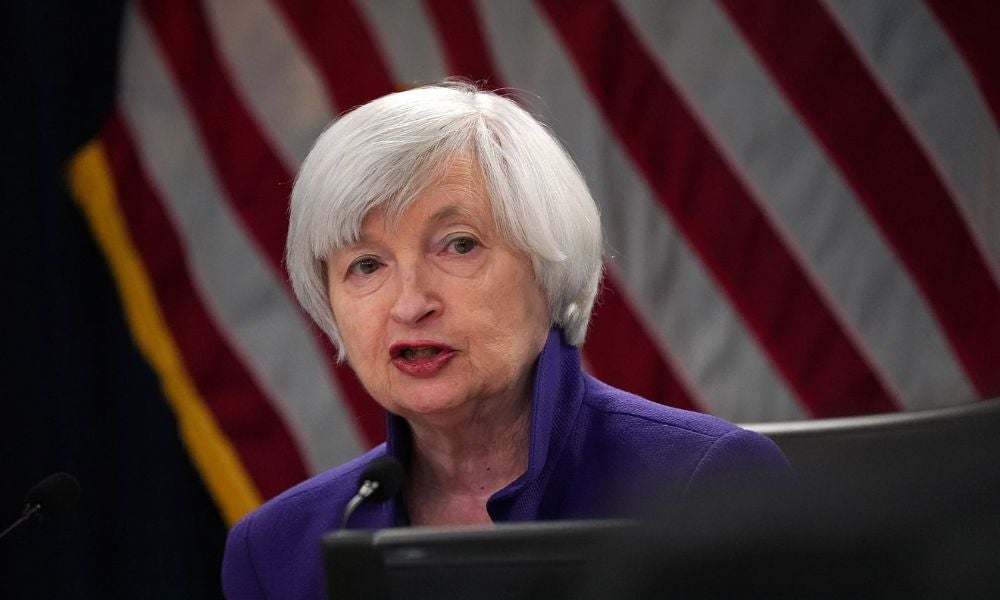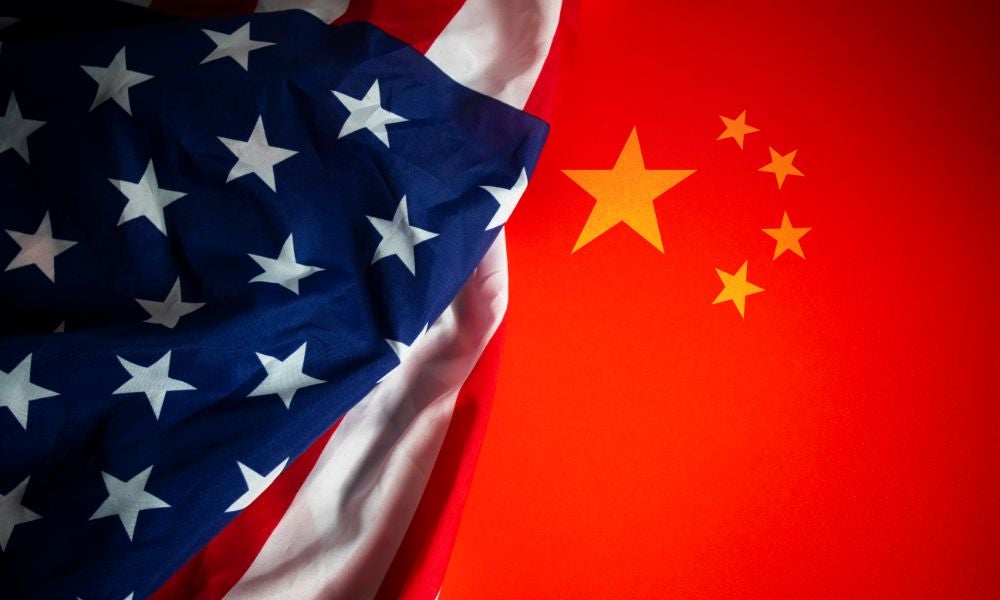Digital money revolution: can governments maintain control?
Low interest rates, mobile money and cryptocurrencies are changing how money works and who controls it, according to UNSW Business School’s Richard Holden
Three phenomena from 2008 are changing how money works, and governments must recognise that or risk losing control of their financial systems. Economist Richard Holden says it’s a must-win race against potential bad actors – but there is a home-side advantage.
The interaction of these phenomena – which the Professor of Economics at UNSW Business School examines in his recent book, Money in the 21st Century – has rendered money cheap, mobile and digital in ways that are transforming the world. In a recent talk at the Sydney Writers’ Festival, presented in partnership with UNSW Sydney, Prof. Holden discussed three people who were central to this transformation and what governments must do to keep their economies intact.
According to the economist, he had in mind an “audience of one” – US Treasury Secretary Janet Yellen – when he wrote the book. That’s because his key argument – one that he hopes the United States and other advanced economies will heed – is that governments must act to maintain economic control in this new world by creating central bank digital currencies. And they must do it before the wrong entities beat them to it.
“For the first time in centuries, there is a rivalry between private and public currencies,” Prof. Holden said. “And, for the first time in history, private currencies might win. Even if they don’t, the contours of the battle will shape what government currency is and what it can do.”

The cautionary tale of Facebook’s Diem
Prof. Holden began with a story and a warning about a summer 2021 breakfast meeting between Dr Yellen and Fed Chairman Jerome Powell. It centred on whether the US government should approve a trial for a Facebook-developed private cryptocurrency called Diem.
Mr Powell was in favour of the proposal, contending that permitting an American company to control a private, global cryptocurrency would give the US government a role in establishing the game rules. However, Ms Yellen, whose support was vital in what was a potentially risky decision for Mr Powell, demurred.
Although she had been in government for nearly two decades, Dr Yellen was an “economics professor at heart, and the economist in her foresaw all kinds of problems” in allowing the Diem trial, Prof. Holden explained.
First, she was concerned about network externalities and digital currencies. Based on network effects, the more that people used Diem, the more attractive it would become to other consumers. “This phenomenon leads to a winner-take-all market, in which one firm ends up with a huge market share,” Prof. Holden explained. Dr Yellen’s worry, therefore, was whether Facebook was proposing just a trial for Diem or “the first step on a march to market dominance”.
Read more: Is the future of money digital? Why the CBDC is a game-changer
She also questioned whether Facebook would, in fact, control Diem. As Prof. Holden pointed out, the genesis of the digital currency movement was distrust for centralised authority in general and government in particular, and the whole point of the blockchains on which cryptocurrencies exist is that they are decentralised and anonymous.
Finally, she recognised that while cryptocurrencies may have virtues, they also come with, or at least facilitate, vices. “Tax evasion, money laundering, and the arms and illicit drug trades are already lubricated by cryptocurrencies,” Prof. Holden said. “For Yellen, the downsides of a Facebook digital currency were too great, and the benefits too hard to see.”
Ultimately, the Treasury Secretary declined to provide her endorsement for the Facebook proposal, meaning that if Mr Powell wanted to back the Diem trial, he would have to do it alone. “That was the day the Diem died,” Prof. Holden said.
It wasn’t the end of the digital currency movement, though. More than 50 central banks are currently exploring issuance; meanwhile, China has introduced the electronic yuan, the EU plans to issue a virtual euro, and the UK and US governments are considering digital currencies. In total, the digital currency market is now worth $2 trillion.

“The year that changed everything”
For millennia, very little has changed about how money functions. From the days of China’s Ming Dynasty until the 21st Century, governments uniformly controlled centralised systems of fiat money and decided what currencies to use for exchange within their borders.
“That pattern was disrupted in 2008 by three seemingly unconnected phenomena that are likely to redefine money, the roles it performs and who controls it,” Prof. Holden said. These were the slashing of interest rates in response to the Global Financial Crisis, the launch of the iPhone and the rise of the smartphone, and the introduction of decentralised currency with the advent of Bitcoin. This vintage is why Prof. Holden thus considers 2008 “the year that changed everything”.
He next turned to the story of Vitalik Buterin, whom he called the “wiry, brilliant, hard-blogging … central figure in the world of private digital currencies, and the closest thing that a movement based on decentralisation can have to a leader”. Mr Buterin’s work is critical to Web3, a new iteration of the internet incorporating blockchain technologies and token-based economics, which Prof. Holden sees as the “real power of cryptocurrencies”.
Read more: The Bitcoin bubble: four predictions about the future of cryptocurrency
He said the 30-year-old programmer’s “great genius” was realising Bitcoin’s potential but also recognising that it needed to be programmable, something he achieved with the Ethereum blockchain. This digitisation, combined with the cheapness of money under low rates, has permanently shifted the global balance between the supply of and demand for money.
The final phenomenon, the mobilisation of money via the smartphone, also has profound implications beyond the convenience it represents. As Prof. Holden pointed out, mobile money lacks the anonymity of cash, as every transaction using a credit card, debit card, Apple Pay, or other online payment system is recorded and available for tax authorities to identify illegal activity.
Cash’s anonymity has underpinned illicit activity from tax evasion to human trafficking and facilitated a massive black economy – amounting, for example, to 40 per cent of all economic activity in India. It also denies governments the base tax required to fund essential services and allows criminal activity to flourish.
These concerns were behind India’s drive to demonetise in 2016 by removing large-denomination banknotes from circulation, a poorly executed move that had disastrous effects on the economy. “But it was a telling moment: it showed that cash as a medium of exchange, even in a country that relies heavily on it, is declining in importance,” Prof. Holden said. “India’s demonetisation is both an example of how not to become a cashless society and also a warning about the inevitability of a cashless society.”

The challenge for governments
It was Raghuram Rajan, the renowned economist leading the Reserve Bank of India at the time, who brought the country’s economy through that difficult moment, and he’s the final figure of the trio, along with Dr Yellen and Mr Buterin, at the heart of Money in the 21st Century.
Rajan had warned President Narendra Modi’s government against a plan that amounted to “sucking 86 per cent of India’s currency out of circulation almost overnight,” recognising that the likely short-term economic costs would outweigh any long-term benefits, Prof. Holden said.
Importantly, Rajan also recognised the spill-over effect of US monetary policy on emerging-market countries like India and the problems that an era of cheap money creates beyond national borders.
“When monetary policy in large countries is extremely and unconventionally accommodative, capital flows into recipient countries and tends to increase local leverage,” Prof. Holden explained. “Not only did cheap money create risks of asset bubbles in countries like the United States, but these risks were exported around the world, and they will endure.”
Subscribe to BusinessThink for the latest research, analysis and insights from UNSW Business School
According to Prof. Holden, how governments respond to these changes will determine their ability to maintain equitable financial systems and ensure that future economies work for free societies, rather than for private entities, or worse. “Money hasn’t just become decentralised; it’s become costless, rationed only by lenders’ expectations of borrowers’ ability to repay the principal,” he said.
The internet age has dramatically increased the mobility of money, and smartphones “opened the door to digital payments that are more convenient and safer than cash, to instantaneous money transfers between individuals, and to a safe and accessible store of value and means of transacting business for some of the poorest people on the planet,” Prof. Holden said.
“These three phenomena jointly raise one big question: can central authorities keep control of the monetary system in the digital age?” he said. “The challenge facing governments is how to harness these innovations without killing them.”

A race to define the rules of the game
Prof. Holden’s position is that governments of advanced economies must create digital currencies before global private currencies powered by network externalities emerge as dominant. While Facebook failed to institute a digital currency, he said, the next company may not.
“The rising levels of US government debt, combined with the growth of China into the world’s largest economy, have suddenly raised the prospect of the US dollar losing its status as the global reserve currency. That would lead to the US government losing the low borrowing rates and seemingly unlimited power to issue bonds and the so-called exorbitant privilege that goes with it,” which would have irreversible ripple effects across the global economy.
“Advanced economies, like Australia, the United States and the European Union, are in a race with private potential providers. They’re also in a race with China, and China’s currently very far ahead,” Prof. Holden said. “Facebook came this close to creating a possibly completely dominant, totally non-democratic digital currency that could have supplanted the US dollar.” One person – Dr Yellen – prevented that.
“For advanced economies, it is an absolutely pressing concern to win this race, to crowd out the potential private providers of digital currencies and to push back on the possibility of China controlling our financial world,” he concluded.
